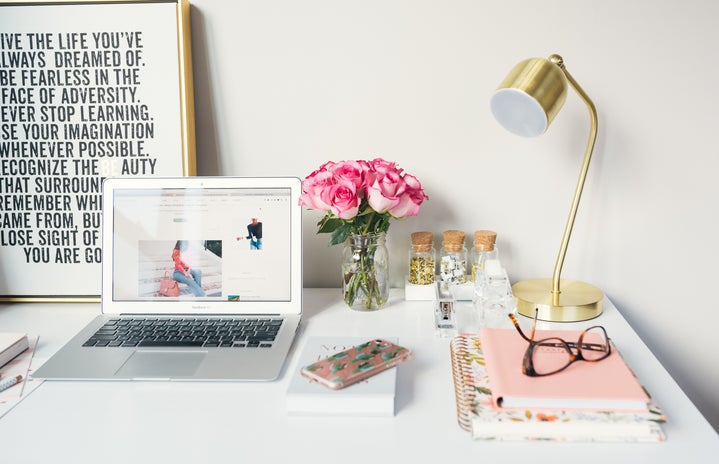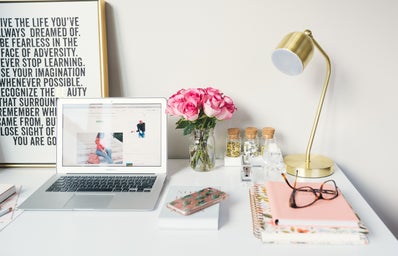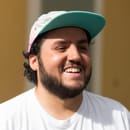With the internet being so easy to access, it has become easier for independent artists to find an audience and let their work be known. As a result, a variety of movements, collectives, and scenes have found a way to pave their path. The independent art scene in Puerto Rico is no different. Recently, many artists from a variety of disciplines have found platforms that have made it easier for them to share their work. In addition, small businesses such as Electroshock in Santurce and Rio Piedras, bars like Off The Wall in Mayaguez, and libraries like La Casita Books and Gifts in Aguadilla have provided up-and-coming artists a space to display their talents. “Puerto Rican Women Killing It in the Independent Art Scene” is a series of interviews that provides a glimpse at some of the women who have recently gained recognition in the art scene. Though the artists are asked similar questions, some are asked queries surrounding their work, specifically.
Nicole Cecilia Delgado Poueymirou is a poet, book designer, director of La Impresora and coordinator of the Feria de Libros Independientes y Alternativos (FLIA).
Picture of the artist by Adál Maldonado
How did you get into writing?
I always loved writing poems, ever since I was a little girl. In 1999, when I was a sophomore in the University of Puerto Rico in Mayagüez, I started studying Comparative Literature. Then I started to organize readings and publish poetry magazines with students from different fields of study. Those were the years of the resistance against the U.S. Navy territories in Vieques and every student organization of that time joined forces for the movement in Vieques. I think that’s how people saw possibilities in writing. In a poetry event called Viequethon in 2002 I met Pedro Pietri and Ricardo León Peña Villa. I always keep all of these things in mind: Mayagüez, Vieques, Nueva York, self-management, community organizations, exiles, and poetry. Afterwards, I moved to Mexico for five years and I met a large network of Latin American poets with projects and proposals that influenced my writing, book designing and organizational processes.
What are some of the themes you explore and how did you develop your style?
I write about friendship, nature and daily life. I try to connect these with political elements that trouble me or seem relevant.
What is the purpose of La Impresora and how has this place shaped you as an artist?
La Impresora has slowly found its way in its journey. In the beginning, I didn’t know very well what I was doing. I had a Risograph machine and I needed to learn how to use it, but I didn’t understand its potential. Afterwards, Amanda came as an intern. Luckily, we had the opportunity to take the time to experiment, a long time of trial and error until we knew that it worked for La Impresora. We have learned to understand that it’s a tool for the production of independent publishing, a workshop for experimental editorials and material experiments regarding books. We make books in risography and we bind them by hand. All of the work is virtually done in a collaborative fashion and that’s the best part of all. We are constantly involved in the editing, designing and printing of not only our own poetry projects, but that of a bunch of other artists that we follow and get inspired by. I have learned a lot through these collaborations.
What is the purpose of FLIA and how has this festival shaped you as an artist?
The FLIA has always had its purpose firm and clear since its inception. It is a market or local festival about books organized in a voluntary, diverse and do-it-yourself fashion. Its objective is to unite in its space as many Puerto Rican independent publishers as possible so they can get to know each other, let themselves known and sell their work. The FLIA unites independent editorials, writers, engravers, visual artists, comic book artists, designers, literary magazines, etc. It also has a program filled with workshops and presentations. It is a party, a celebration, but with books.
Organizing the FLIA has allowed me to know and helped to strengthen a large network of writers, artists and cultural workers in Puerto Rico. It has helped me create collaborations and the opportunity to offer cultural programs for free to the general public. It is a special moment because that’s where literature is grounded and writers connect with readers thus ideas and people meet.
Is there any other form of art you wish to pursue? If so, what field and why?
I wish to learn about typography and letterpress.
What do you think about the current state of the arts in Puerto Rico?
In Puerto Rico, there’s a lot of great art being done. It has always been done and it will continue to be done. I believe we, as artists, have a great responsibility to effectively communicate the political and economic situation of the island because we have certain liberties. However, the problem we face is the sustainability of projects. In a moment of bankruptcy, the question will come up: “How do we continue?”
What do you think about the current state of the independent scene in Puerto Rico?
The same as the previous answer, but I also see that there’s more interest and love for what’s being produced locally.
If a young girl came up to you and said she wanted to be an artist, what would be your advice for her?
Don’t ask for permission and go for it.
What is your biggest goal right now?
Establish the sustainability of La Impresora.
What do you seek to achieve with your work?
I seek poetry!
All of the pictures in this article were provided by Nicole Cecilia Delgado Poueymirou


